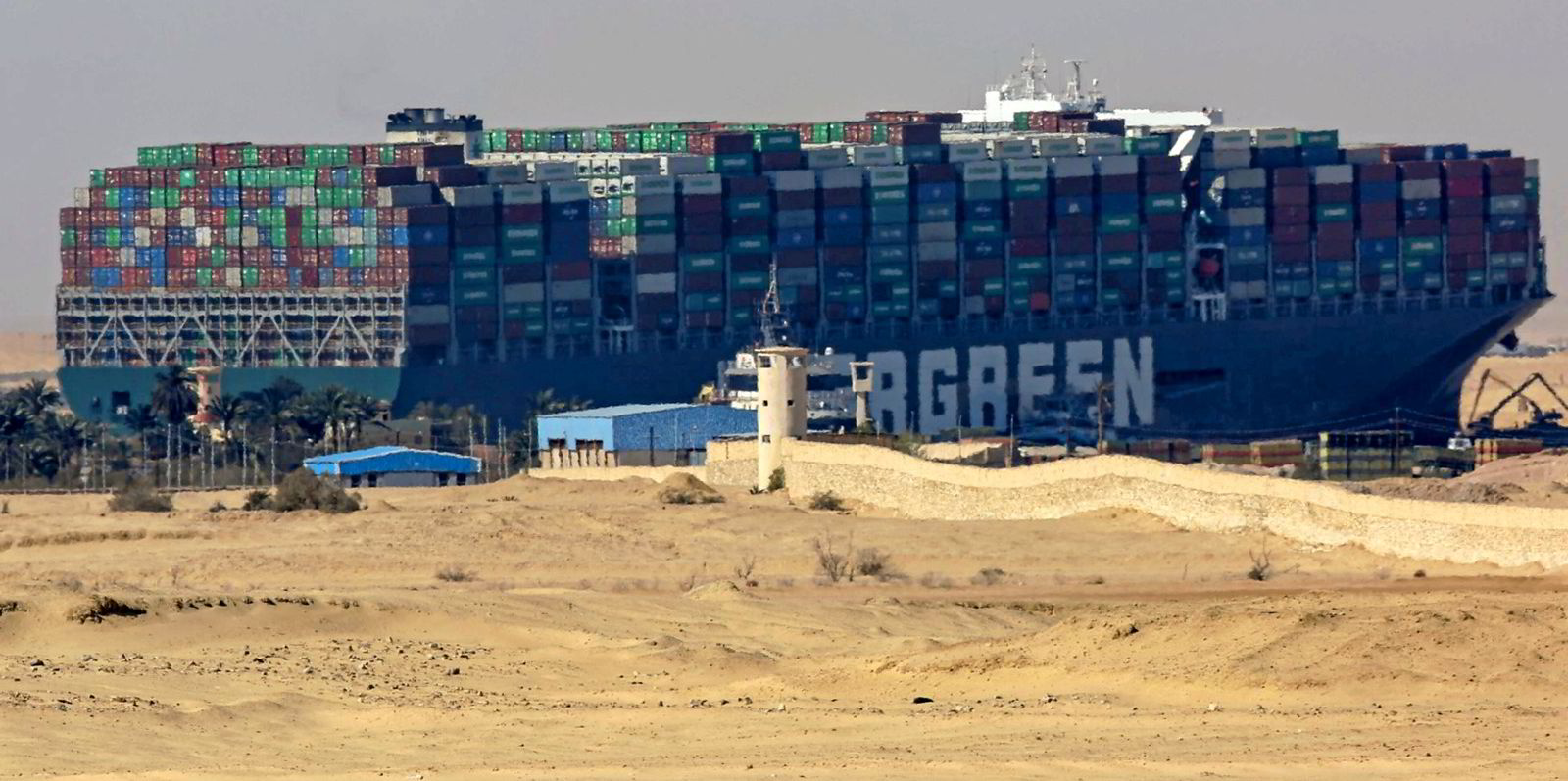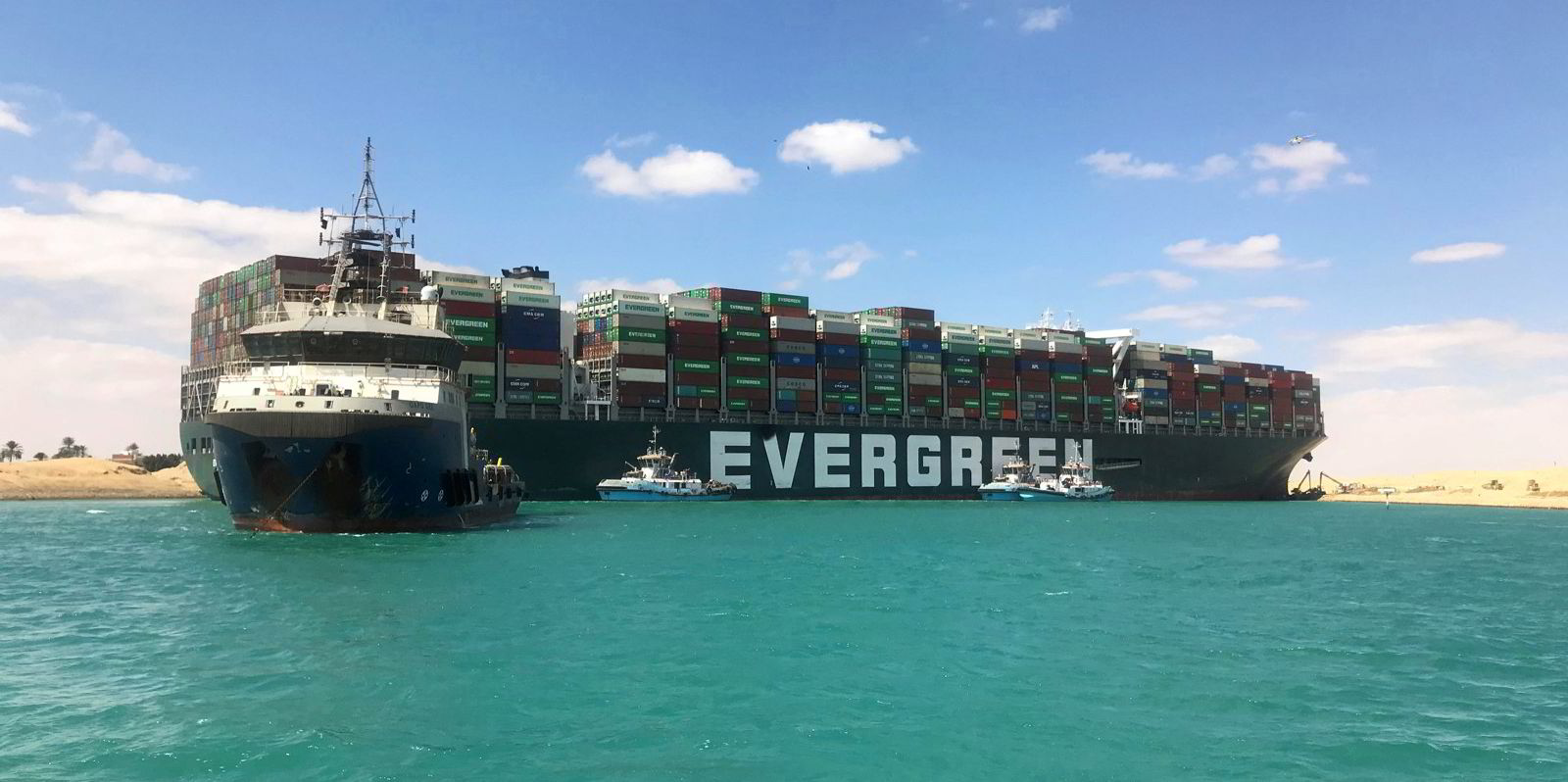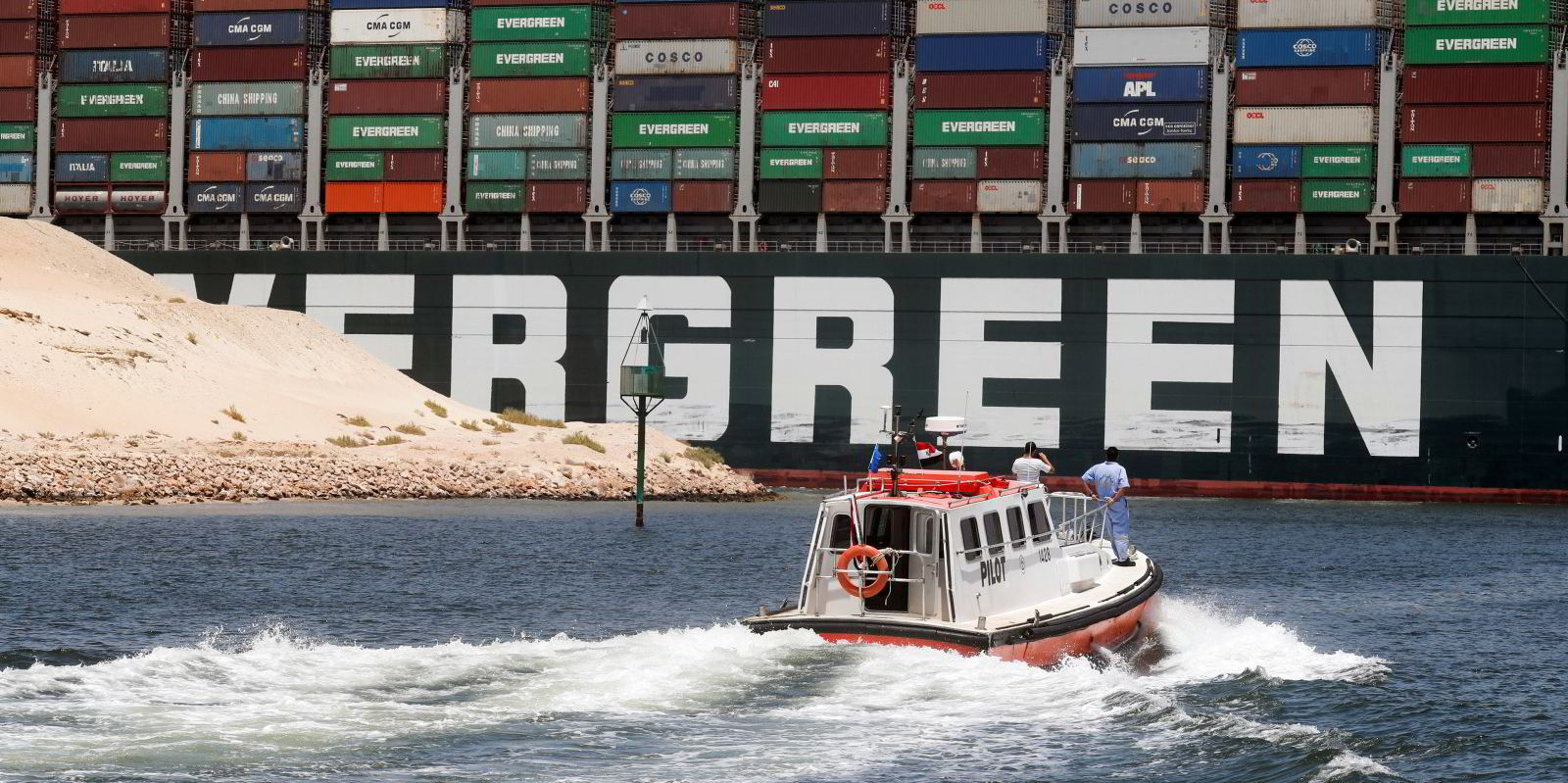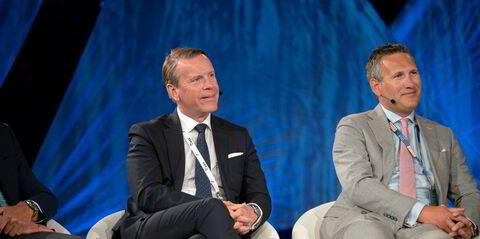The orders of two Suez Canal pilots contributed to the grounding of the 20,388-teu container ship Ever Given (built 2018), according to an accident investigation by the Panama Maritime Authority (AMP).
The report, which has been filed with the International Maritime Organization, described how two pilots joined the vessel on 23 March 2021 at 07.20am.
By 07.41am the Panama-registered Ever Given was firmly aground and would take six days to refloat, causing major disruption to world trade.
As the pilots joined the giant ship, wind speeds increased and sandstorms restricted visibility to the extent that the vessel was unable to maintain position in the middle of the channel.
The pilots ordered an increase in speed to 12 knots — well above the canal’s maximum speed limit — and ordered the helmsmen to go hard to port and hard to starboard.
After several attempts to gain control of the vessel, the Ever Given uncontrollably began to swing to starboard before grounding.
The investigation found that the ship’s navigation was affected by the high winds and squat, bank suction and cushion effects, which “may cause the vessel to take a sudden and decided sheer towards the opposite bank”.
Among the failings of the pilots, the AMP said they did not take enough consideration of the weather. They also did not set a course but instead ordered “hard port or hard starboard”, they increased speed above the recommended limit and did not request assistance from tugs.
They also did not communicate sufficiently with the ship’s master and carried out discussions in Arabic, which excluded the rest of the bridge team.
However, the Ever Given bridge team did not escape criticism. The AMP report suggested they should have engaged more with the pilots and decided who was responsible for giving orders to the helmsmen.
“It has to be highlighted that the master and bridge team remain responsible for the handling of the vessel, with the master giving orders to the helm and the engines,” the AMP said. “If the master allows the pilot to give orders directly (this was the case on M/V Ever Given), these orders are still considered as been carried out under the master’s sole responsibility.”
In its recommendations, the AMP said a familiarisation meeting should take place when pilots join a ship to determine what language will be used.
It was also recommended that the bridge team evaluates the actions of the pilot and should not be “overconfident” about their abilities and skills.
“The captain must intervene if he considers it necessary, since according to the regulation of the Suez Canal, the role of the pilot is that of an advisor,” the AMP said.
The AMP is also calling for the Suez Canal Authority to provide regular mandatory training for pilots in the handling of large-size container ships in difficult weather in the Egyptian waterway.





